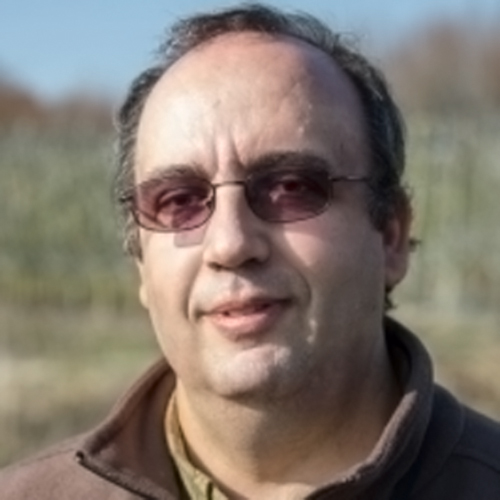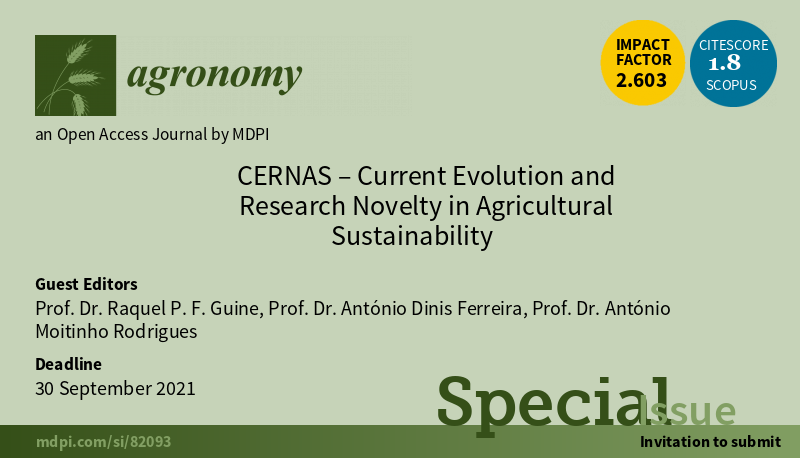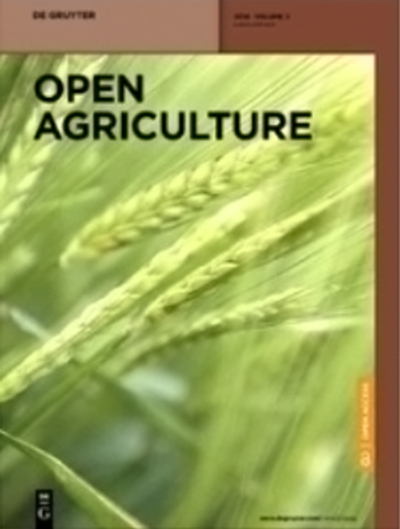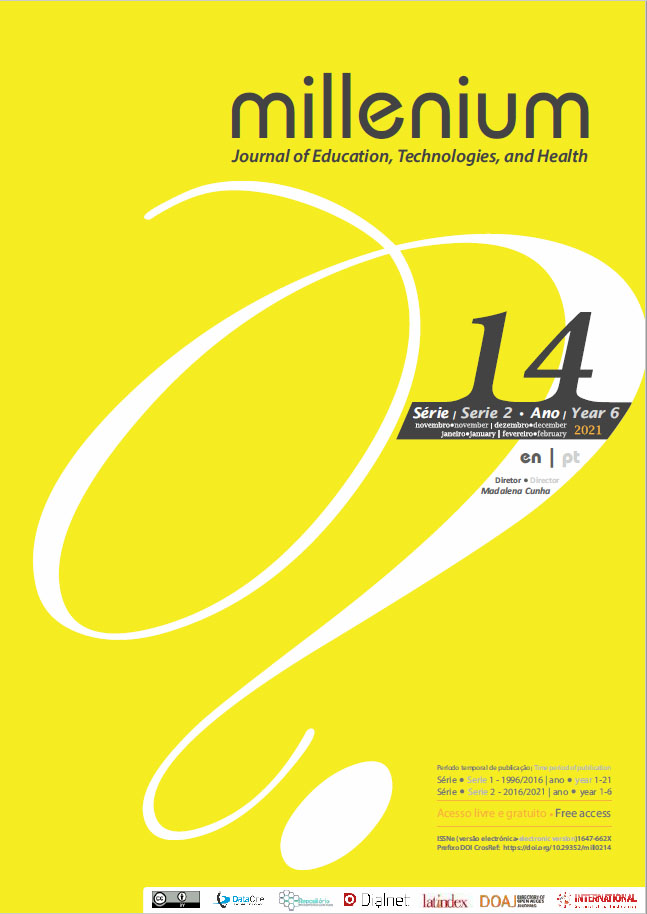CONFERÊNCIA HÍBRIDA
CMR | International Conference on
Multidisciplinary Research
1&2 julho, 2021
TEMPLATES DE ABSTRACT
CIÊNCIAS AGRÁRIAS
Agricultura sustentável
Ciência animal
Meio ambiente e Sociedade
Ciência e Tecnologia alimentar
Nutrição e Comportamentos alimentares
template comunicação oral
CONFERENCISTA

Elena Bartkiene,
PhD
LITHUANIAN UNIVERSITY OF HEALTH SCIENCES
Elena Bartkiene (Doctor of Physical Sciences, Chemistry) professor at Department of Food Safety and Quality, as well as Chief Researcher and Head of Institute of Animal Rearing Technologies in Lithuanian University of Health Sciences. Her scientific achievements comprise 435 positions, including 123 original research papers in journals cited in Clarivate Analytics data basis, 30 research papers in journals cited in other data basis, 4 book chapters, 128 reviewed conference theses, 5 textbooks for students’, 3 methodical books, 2 patents registered in EPO and 1 patent registered in Lithuanian national patent office etc. The research areas are basically in Food/Feed (Bio)Technology, Safety and Quality control, Molecular Microbiology, Sustainable (bio)Technology. She participated and have experience in coordinating and carrying out research projects (leader and/or participant in more than 23 national and international projects). She is scientific expert of the Lithuanian and Polish Agencies of Sciences, Reviewer and Editor of the national and international scientific journals; Member of the of ISEKI-Food Association (Austria) and Institute of Food Technologists (IFT, USA) organizations.
BERRIES / FRUITS, CEREAL, AND DAIRY INDUSTRY BY-PRODUCTS VALORIZATION BY USING LACTIC ACID BACTERIA STRAINS WITH ANTIMICROBIAL PROPERTIES
Elena Bartkiene, Modestas Ruzauskas, Egle Zokaityte, Vita Lele, Vytaute Starkute, Paulina Zavistanaviciute, Dovile Klupsaite, Laurynas Vadopalas, Darius Cernauskas, Vadims Bartkevics, Iveta Pugajeva, Zane Bērziņa, Romas Gruzauskas, Daiva Zadeike, Pranas Viskelis, Erika Mozuriene, Grazina Juodeikiene
By-products from berries/fruits (B/F), cereal, and dairy industry, are an important environmental issue in many countries. Most agro-industrial by-products contain highly valuable components, which are not used efficiently enough. One way to recover these, is the extraction of valuable compounds. However, in most of the cases, solvent extraction is not economically or/and involves the use of toxic extractants that hinder their management. As well as extraction involves high temperatures, which lead to degradation of thermolabile compounds. From this point of view, the use of technologies that enable valorization of the whole by-product can be a promising way to increase the efficiency and sustainability of the process. In our research group the concept of the valorization of B/F (raspberries, blackcurrants, apples, rowanberries) and dairy industry (sour whey) by-products, in combination with antimicrobial lactic acid bacteria (LAB) strains, for the preparation of antimicrobial combinations was analysed. Also, a design of extrusion and fermentation with L. casei and L. paracasei strains technologies combination for wheat processing by-products (WPBP) valorization to higher value food/feed stock was tested. Antimicrobial activities of the B/F by-products and LAB (thirteen LAB strains were estimated against fifteen pathogenic strains) were evaluated, while whey substrate for the selected and the highest antimicrobial activities showing LAB cultivation and encapsulation was used. In case to select the most appropriate technology for WPBP valorization, various parameters of the processed and nontreated WPBP were analysed: acidity and microbiological parameters, sugars concentration, free amino and fatty acids profile, biogenic amines formation, influence of the different treatments on WPBP texture and colour coordinates, antimicrobial and antifungal characteristics, as well as influence of the different treatments on a wide range of mycotoxins concentration.
It was found that lyophilised blackcurrant and apple by-products inhibited 13 and 12 pathogenic strains of the 15 analysed, respectively. The broadest antimicrobial spectrum and the strongest inhibition of the tested pathogens were shown by the Lactobacillus casei LUHS210 and Lactobacillus uvarum LUHS245 strains and, for the abovementioned LAB strains biomass preparation and encapsulation, whey enriched with 2.5% glucose, 2.0% yeast extract and 0.5% saccharose is a suitable and sustainable substrate. Moreover, the B/F by-products’ antimicrobial activity can be enhanced in combination with the LUHS245 and LUHS210 strains. Finaly, it was stated that B/F and dairy industry by-products, in combination with antimicrobial LAB are promising ingredients for the preparation of antimicrobial combinations. Also, it was confirmed that combination of extrusion and fermentation with L. casei and L. paracasei strains could be used as a perspective innovative pre-treatment for WPBP, capable to potentially enhance its composition, safety characteristics, antimicrobial and antifungal properties.
Keywords: food processing industry by-products; lactic acid bacteria; antimicrobial activity; antifungal activity; extrusion; fermentation; mycotoxins; biosafety.

António Dinis Ferreira,
PhD
CERNAS – INSTITUTO POLITÉCNICO DE COIMBRA
AGRICULTURE AND ENVIRONMENT: FUTURE PERSPECTIVES
António Dinis Ferreira (PhD) Head of CERNAS research Centre, Coordinated several national and international research projects. Expertise on Environmental management, Natural resources management, sustainable development, hydrology, soils, and desertification. H-index: 30, cited: 2351 times. With more than 80 papers in international journals and book chapters, and more than 300 other scientific and technique papers. He was awarded the prize for best PhD in Global Change held in Portugal from 1995 to 2000, and won the Energy Globe Award 2006 for Portugal with a project in the area of Environmental Management. He coordinated a Life Environmental project that was considered by the European Commission as one of the Best Life Environmental Projects in 2007-2008. He is/was involved in 40 research and development projects, funded by the European Commission (17) and the Portuguese Government (23), acting as main coordinator for 9 and as country coordinator for 6.
REVISTA

Possibilidade de publicar artigo completo na Agronomy | Special Issue “CERNAS – Current Evolution and Research Novelty in Agricultural Sustainability”.
Academic OneFile (Gale); AGRICOL; AGRIS (FAO); CAB Abstracts & Global Health / CAB Direct (CABI); CAPlus / SciFinder; Current Contents – Agriculture, Biology & Environmental Sciences / Web of Science; DOAJ; EBSCO; FSTA (IFIS); ProQuest; SCIE / Web of Science; Scopus
Journal Ranking Lists | Journal Citation Reports – Science Edition; Norwegian Register for Scientific Journals, Series and Publishers; Scimago

Possibilidade de publicar artigo completo no
Open Agriculture | Topical Issue “International Conference on Multidisciplinary Research – Agrarian Sciences”
(indexado na Scopus) com oferta especial: desconto de 50% nas taxas de processamento de artigos.
Por favor entre em contato com a Editora-Chefe Alicja Pawlak ( Alicja.Pawlak@degruyter.com ), Polónia para beneficiar da oferta.
Elsevier – SCOPUS; Clarivate Analytics – Emerging Sources Citation Index; CiteScore 2019: 0.8; SCImago Journal Rank (SJR) 2019: 0.237; Source Normalized Impact per Paper (SNIP) 2019: 0.434

MILLENIUM – JOURNAL OF EDUCATION, TECHNOLOGIES AND HEALTH
Todos os resumos aceites (para comunicações orais ou em e-póster) serão publicados numa edição especial da revista Millenium – Journal of Education, Technologies and Health.
Os autores poderão ainda submeter o artigo na plataforma da Millenium.
Documentos necessários à submissão
Template do artigo (formato editável)
Ficha de Artigo

COMISSÃO CIENTÍFICA
Raquel Guiné
POLITÉCNICO DE VISEU, ESCOLA SUPERIOR AGRÁRIA, CERNAS, Portugal | ORCiD
Aida Silva
UNIDADE DE QUÍMICA-FÍSICA MOLECULAR, UNIVERSIDADE DE COIMBRA, Portugal | ORCiD
Amélia Delgado
UNIVERSIDADE DO ALGARVE, Portugal | ORCiD
António Dinis Ferreira
INSTITUTO POLITÉCNICO DE COIMBRA, CERNAS, Portugal | ORCiD
António Monteiro
POLITÉCNICO DE VISEU, ESCOLA SUPERIOR AGRÁRIA, Portugal | ORCiD
Cristina Amaro da Costa
POLITÉCNICO DE VISEU, ESCOLA SUPERIOR AGRÁRIA, Portugal | ORCiD
Dace Klava
LLU, FACULTY OF FOOD TECHNOLOGY, Latvia
Elena Bartkiene
LITHUANIAN UNIVERSITY OF HEALTH SCIENCES, Kaunas, Lithuania | ORCiD
Elsa Ramalhosa
INSTITUTO POLITÉCNICO DE BRAGANÇA, Portugal | ORCiD
Fernando Gonçalves
POLITÉCNICO DE VISEU, ESCOLA SUPERIOR AGRÁRIA, Portugal | ORCiD
Henryk Hubert Jeleń
POZNAN UNIVERSITY OF LIFE SCIENCES, Poland | ORCiD
Ilija Djekić
UNIVERSITY OF BELGRADE – FACULTY OF AGRICULTURE, Belgrade, Serbia | ORCiD
Luísa Cruz-Lopes
CERNAS, INSTITUTO POLITÉCNICO DE VISEU, Portugal | ORCiD
Manuela Pintado
ESB, UNIVERSIDADE CATÓLICA PORTUGUESA, Porto, Portugal | ORCiD
Maria João Barroca
Unidade de Química-Física Molecular, UNIVERSIDADE DE COIMBRA, Portugal | ORCiD
Maria Papageorgiou
DEPARTMENT OF FOOD SCIENCE AND TECHNOLOGY, INTERNATIONAL HELLENIC UNIVERSITY, Thessaloniki, Greece
Marijana Matek Sarić
UNIVERSITY OF ZADAR, DEPARTMENT OF HEALTH STUDIES, Croatia | ORCiD
Mario Giorgi
UNIVERSITÀ DI PISA, Italy | ORCiD
Maša Černelič Bizjak
FACULTY OF HEALTH SCIENCES, UNIVERSITY OF PRIMORSKA, Slovenia | ORCiD
Monica Tarcea
GEORGE EMIL PALADE UNIVERSITY OF TARGU MURES, Romania | ORCiD
Ofélia Anjos
INSTITUTO POLITÉCNICO DE CASTELO BRANCO, Portugal | ORCiD
Paula Correia
POLITÉCNICO DE VISEU, ESCOLA SUPERIOR AGRÁRIA, CERNAS, Portugal | ORCiD
Pedro Rodrigues
POLITÉCNICO DE VISEU, ESCOLA SUPERIOR AGRÁRIA, CERNAS, Portugal | ORCiD
Sílvia Rocha
Departamento de Química, UNIVERSIDADE DE AVEIRO, Portugal | ORCiD
Soulaïman Sakr
UNIVERSITE D’ANGERS, France | ORCiD | SCOPUS Author ID: 35608505100
Vítor Martinho
POLITÉCNICO DE VISEU, ESCOLA SUPERIOR AGRÁRIA, CERNAS, Portugal | ORCiD
